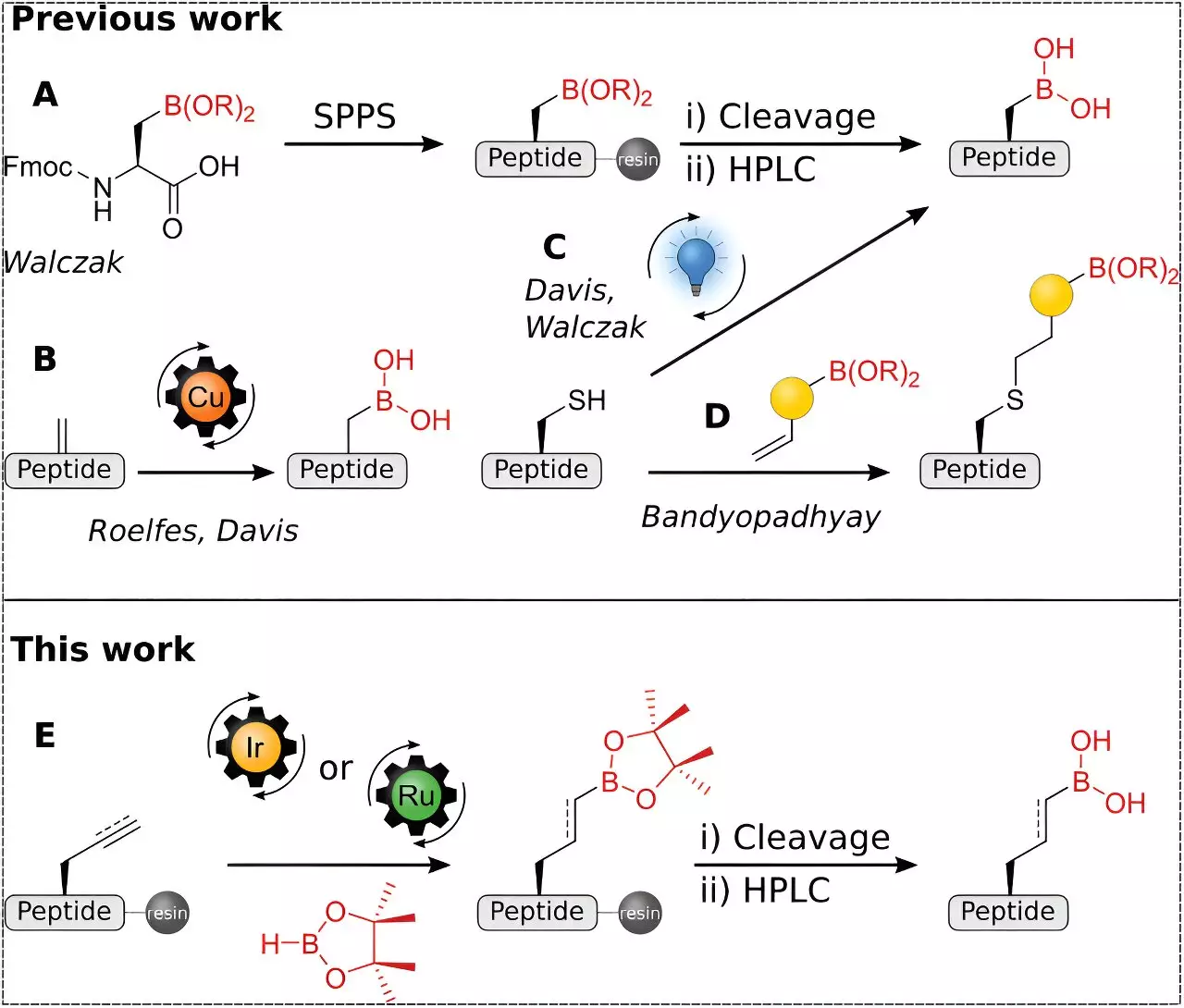Recent advancements in chemical processes have opened the door to innovative applications in the field of synthetic immunology. A pivotal breakthrough achieved by researchers at Heidelberg University has enabled the rapid and efficient production of modified peptides, specifically peptide boronic acids, through a novel hydroboration technique. This revelation is not just a matter of academic curiosity; it has practical implications that could revolutionize approaches in immunotherapy and drug delivery systems, addressing critical challenges in medical science.
The process developed by scientists from the Institute of Organic Chemistry and the Institute of Pharmacy and Molecular Biotechnology centers around a unique ability to attach boronic acids to peptide frameworks. Peptides, which are short chains of amino acids, are instrumental in the immune response, acting as carriers for immunological markers that signal to the body what constitutes a threat. By integrating boronic acids into these structures, researchers are introducing a class of compounds now positioned to exploit uncharted interactions within immune cells.
Through a controlled chemical reaction, the scientists implemented hydroboration on resin-bound peptide alkenes and alkynes. This method not only facilitates the introduction of boronic acids but also generates a platform for further chemical modifications. This versatility is crucial as it allows for the customization of peptides to align with specific therapeutic goals, paving the way for personalized medicine tailored to individual patient needs.
One of the most exciting prospects of this research is its potential application in immunotherapy, particularly for treating malignancies. The unusual interaction profile of boronic acids may enable the design of peptides that can effectively provoke an immune response against tumor cells. Researchers propose that, in the longer term, these modified peptides might harness the immune system’s capabilities to identify and eradicate cancer cells, allowing for a treatment strategy that relies on the body’s inherent defenses rather than external drugs.
Equally noteworthy is the role of peptide boronic acids in smart drug delivery. The boronic acid moiety could act as an “anchor,” attaching the peptides to nanoparticles designed for targeted therapy. This innovative approach could allow for precise delivery of therapeutic agents to specific organs or cellular environments, enhancing efficacy while minimizing side effects typically associated with systemic therapies.
The leap made by the Heidelberg research team extends beyond cancer treatment; it signifies a broader movement within synthetic immunology. The ability to create a diverse library of biologically active peptide boronic acids could offer new methods for exploring immune interactions, leading to groundbreaking discoveries in how the immune system recognizes and responds to various pathogens, thereby improving vaccine designs and prophylactic measures.
As stated by Junior Professor Dr. Franziska Thomas, the practicality of these newly synthesized compounds in research and clinical settings cannot be overstated. Their ability to facilitate numerous chemical modifications means that scientists can not only study the direct effects of these peptides on immune responses but can also adapt them for targeted actions that respond to specific disease states.
Despite the undeniable promise of this research, challenges remain. Scientists must evaluate the long-term stability and safety of these modified peptides in biological systems. The transition from laboratory discoveries to real-world applications typically encounters regulatory hurdles, requiring extensive testing to ensure that new therapies do not inadvertently provoke undesirable immune responses.
However, with continued investment in research and development and a collaborative effort across various scientific disciplines, the possibilities offered by peptide boronic acids could herald a new era in immunotherapy and targeted drug delivery. The path ahead is filled with potential for harnessing the power of the immune system, making this research not only a triumph of chemistry but a beacon of hope in the fight against complex diseases.


Leave a Reply